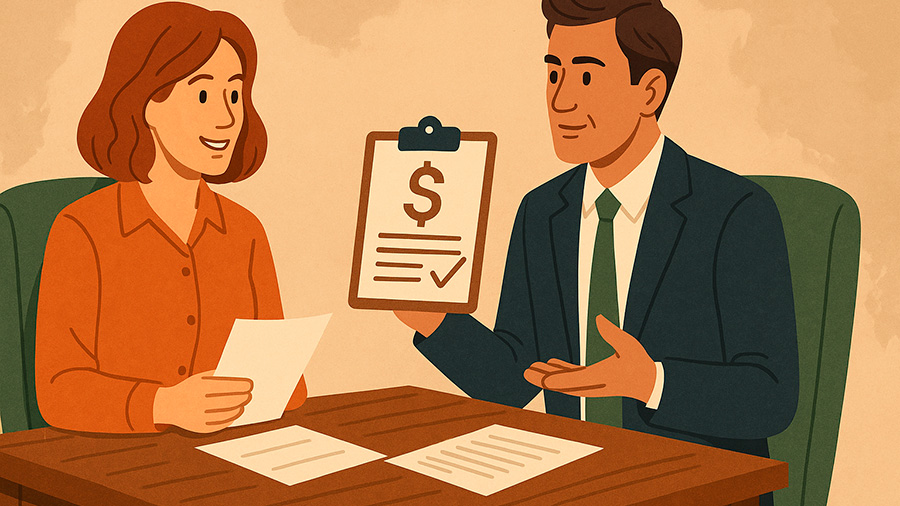Negotiating Your Way to Better Credit: How Honest Communication Can Turn Things Around

When credit problems hit, panic often follows. A missed payment here, a high balance there, and suddenly your score drops like a rock. For many, that moment triggers stress and shame. But what if the path to recovery didn’t have to involve expensive services or risky shortcuts? What if simply talking—yes, talking—to your lenders could help you repair bad credit legally and rebuild your reputation with the financial system? Honest negotiation is one of the most underrated tools in personal finance, and it can deliver results that are both ethical and effective.
Understanding the Legal Side of Credit Repair
Before diving into strategies, it’s crucial to understand what “legal” really means in the credit repair world. The internet is full of promises to erase debts or delete negative marks overnight, but that’s not how credit reporting works. Under the Fair Credit Reporting Act (FCRA) and the Fair Debt Collection Practices Act (FDCPA), you have the right to dispute inaccurate information, request debt validation, and negotiate repayment terms. But removing accurate information—like a legitimate late payment—is not lawful unless the creditor agrees to it voluntarily.
That’s where communication becomes key. Instead of fighting the system, you can work within it. By negotiating with creditors directly, you can often reduce what you owe, adjust payment timelines, or even get certain marks updated to “paid as agreed.” These actions can significantly improve your credit standing without crossing any legal lines.
Why Lenders Are Willing to Negotiate
It’s easy to assume creditors are rigid, faceless institutions, but in reality, they have one major goal: recovering as much money as possible with minimal hassle. When someone defaults, lenders don’t want to chase the debt endlessly or sell it to collections for pennies on the dollar. If you approach them early, respectfully, and with a clear plan, they’re often open to compromise.
In many cases, negotiating allows you to repair bad credit legally by turning negative accounts into settled or restructured ones. While these aren’t as good as “paid in full” statuses, they still look far better than defaults or charge-offs. Communication proves responsibility—and that alone counts for something in the eyes of both creditors and future lenders.
Practical Steps to Start Negotiating
The process of negotiating your debts might seem intimidating, but it’s more approachable than most people think. Preparation and clarity make all the difference.
1. Review Your Credit Reports
Start by requesting free reports from Equifax, Experian, and TransUnion via AnnualCreditReport.com. Identify which accounts are dragging your score down. Make note of the amounts owed, payment history, and the names of the creditors or collection agencies involved. This gives you a clear roadmap before making any contact.
2. Know What You Can Offer
Before reaching out, decide what you can realistically pay. If your finances are tight, partial settlements may be an option. Some creditors accept 40–70% of the total balance if you pay a lump sum. Others may allow you to resume payments under a revised plan. Knowing your boundaries keeps you from overpromising and underdelivering.
3. Contact Creditors Proactively
Don’t wait until accounts are sold to collections. Reach out directly to lenders while the debt is still under their control. Explain your situation honestly—job loss, medical issues, or unexpected expenses—and emphasize your desire to resolve the matter. Most creditors appreciate sincerity and initiative.
4. Get Everything in Writing
Verbal promises can disappear. Once an agreement is made, request written confirmation that outlines the payment terms and how the account will be reported to the credit bureaus. This protects you from misunderstandings and ensures your credit report reflects the agreed-upon updates.
Common Negotiation Options That Work
When trying to repair bad credit legally, you have several legitimate negotiation strategies available. Choosing the right one depends on your financial capacity and how the debt is currently classified.
| Negotiation Type | What It Means | Best For | Potential Outcome |
|---|---|---|---|
| Pay-for-Delete Agreement | You offer to pay the full or partial balance in exchange for the creditor removing the account from your report. | Collections or charge-offs | Cleaner report, though not all creditors agree to this |
| Settlement for Less Than Owed | Creditor accepts a reduced payment to close the account. | Large overdue debts | Marked as “Settled” instead of “Unpaid,” improving credit health |
| Goodwill Adjustment | You ask the lender to remove a late payment or negative mark as a gesture of goodwill. | Long-term customers with a single lapse | Removal or update of negative entry |
| Payment Plan Modification | Restructuring your repayment schedule to make monthly amounts manageable. | Active accounts at risk of delinquency | Prevents future late payments, stabilizes account history |
These methods rely on cooperation, not deception. Always remain polite and persistent, but never aggressive. Creditors are far more receptive to calm, reasoned discussion than demands or threats.

Negotiation Script Example
Not sure what to say when you pick up the phone? Here’s a simple structure that works in most cases:
“Hi, my name is [Your Name], and I’m calling about my account ending in [last four digits]. I’ve been reviewing my finances and want to resolve this account responsibly. I’d like to discuss options for repayment or settlement that could help both sides. Would you be willing to work with me to update the account status once I make a payment?”
It’s short, respectful, and positions you as someone trying to do the right thing—exactly the kind of borrower creditors are willing to help.
Negotiation Mistakes to Avoid
Even well-intentioned borrowers can make errors that derail their progress. To truly repair bad credit legally, steer clear of these common pitfalls:
- Admitting liability too quickly: If the debt has been sold or is in dispute, confirm ownership before acknowledging responsibility.
- Failing to get agreements in writing: Without written proof, you have no protection if the creditor changes their mind.
- Making promises you can’t keep: Overcommitting leads to broken agreements and further damage.
- Ignoring collection agencies entirely: Silence can result in lawsuits or judgments, which are harder to recover from.
- Falling for “debt relief” scams: If a company asks for payment before negotiating anything, walk away.
Tracking Progress and Following Up
After making a payment or reaching an agreement, follow up with all three major credit bureaus to ensure the account has been updated correctly. Sometimes lenders delay reporting or make clerical errors that can hurt your score unnecessarily. Keep all correspondence and confirmation numbers until you see the changes reflected in your reports.
It’s also smart to monitor your credit monthly using free tools from Experian, Credit Karma, or your bank. Progress might feel slow at first, but consistent improvement compounds over time. Within six months of steady effort, many borrowers see noticeable changes in their creditworthiness.
When to Seek Professional Help
Not every situation can be handled alone. If you’re dealing with multiple charge-offs, identity theft, or complex disputes, hiring a legitimate credit counselor or attorney might be the best move. Choose professionals certified by the National Foundation for Credit Counseling (NFCC) or the Financial Counseling Association of America (FCAA). These organizations focus on legal, transparent strategies to repair bad credit legally without exploiting consumers.
Mindset: From Survival to Strategy
Repairing your credit isn’t just about numbers—it’s about rebuilding trust, both with lenders and yourself. Taking responsibility, initiating contact, and following through on agreements show maturity and resilience. You’re demonstrating that you’ve learned from past mistakes and are ready to move forward responsibly.
It’s also empowering. Negotiating debts transforms you from a passive victim of circumstance into an active participant in your financial recovery. Every phone call and email becomes a small victory toward reclaiming control.
Communication is the Most Powerful Credit Tool
There’s no magic button to erase years of financial strain, but negotiation offers something better—control, legality, and dignity. When you approach lenders with honesty and persistence, you can repair bad credit legally without deception or shortcuts. Real progress happens through communication, not confrontation. By combining knowledge of your rights, realistic expectations, and steady follow-up, you can rebuild not only your credit score but your financial confidence. The system rewards those who take responsibility—and every successful negotiation brings you one step closer to financial freedom.
